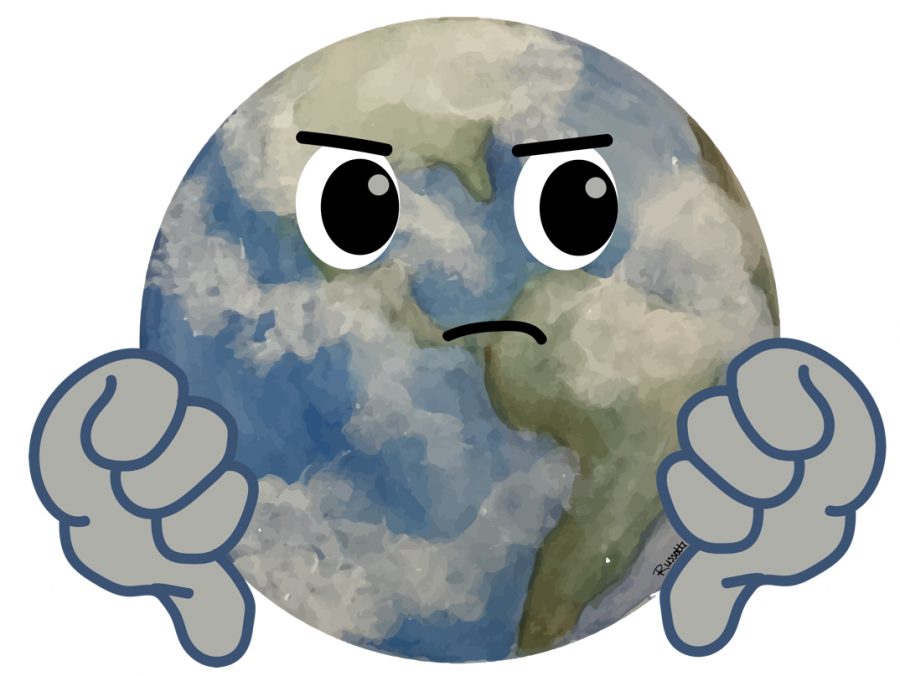Should we honor the Paris agreement? Agreement helps accountability
November 21, 2019
The U.S. officially began its withdrawal from the Paris climate agreement, Nov. 4.
The Paris climate agreement is a landmark accord signed in 2015 by 193 nations in the U.N. General Assembly, with its goal being to limit greenhouse gas emissions.
The U.S. should stay in the agreement.
The U.S.’s leaving is not official until next November, and many fear that a second term for President Donald Trump would mean further pushback on environmental legislation and agreements.
This cannot happen. The time for climate action is now, as the world is only getting warmer and effects of climate change are changing ecosystems.
The hottest month on record for the planet was July 2019, according to the National Oceanic Atmospheric Association’s website.
On Nov. 5, a day after the U.S. left the Paris climate agreement, 11,000 scientists released a document warning of the climate crisis.
It is clear that we are in a climate emergency, and we must do all we can to mitigate and adapt to these human-caused changes.
Part of this process is international agreements. While not binding, these agreements help educate and set targets for world leaders.
Chris argues that because the U.S. is not lowering emissions anyway, there is no purpose to being in an international doctrine. I disagree with this claim.
The Paris climate agreement was put in place in 2016 by former President Barack Obama.
Trump made it clear since the earliest days of his presidency that he does not believe that climate change is a problem, and that he would make no efforts to mitigate it.
Emissions are not being lowered, but it is not the fault of the agreement.
Emission levels remain high because of Trump’s beliefs that climate change is a hoax.
Considering the U.S.’s outsize influence on world standards of climate emissions, the fact that the U.S. is not being involved in the Paris climate agreement will take away pressure on China and India to curb their emissions.
These countries are the world’s first and third largest emitters of greenhouse gases, according to a Nov. 4 New York Times article.
Since China and India are still considered developing countries within the conditions of the agreement, the agreement does not require them to lower their emissions.
Despite this condition, they agreed to lower emissions anyway because the U.S. agreed to take action, according to the same article.
Without the U.S. involved, countries that view their standards as an example for reducing carbon emissions will be out.
This will make lowering emissions even harder than it would be with the U.S. in the agreement.
When we consider that the U.S. is the biggest carbon polluter in history, according to a June 2017 New York Times article, it is unfair for the U.S. to leave the agreement rather than being held accountable for their emissions.
The Paris climate agreement decided not to blame any one country for the crisis, giving countries the freedom to choose their own emission targets.
I agree that the U.S. should act boldly in how emissions are lowered.
However, I do not think that we should discourage international agreements.
We must do everything possible in order to prevent worse effects from climate change.
Hurricanes are getting worse, with Hurricane Harvey in 2017 causing nearly $125 billion in damages, according to a September 2018 Business Insider article
This country, and all countries, will continue to see the effects of climate change if emissions are not lowered.
Every single method is needed to reduce emissions — including the Paris climate agreement, despite the shortcomings that exist within it.
An agreement between 193 countries is better than none, particularly when the alternative is accepting suffering.








